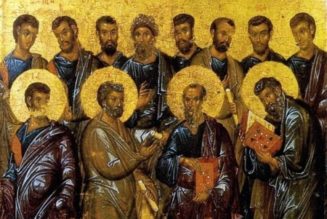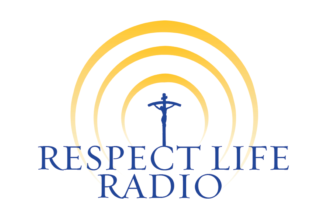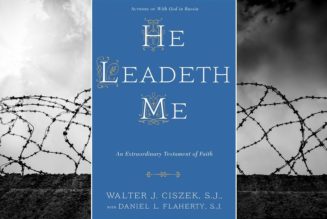New, sanitized editions of Mark Twain’s classic novel “Adventures of Huckleberry Finn” airbrush out offensive or racist language. But should words that are offensive or potentially offensive to modern readers be removed from great books?
 Totalitarian regimes have certain traits in common, irrespective of whether they are considered “socialist,” “national socialist,” “fascist,” or “communist.” One of these traits is the censoring of history. It might take the form of burning books, banning books, or simply censoring the “incorrect” parts of books. It is significant, for instance, that the forces aligned to Big Brother in 1984 go to great lengths to rewrite history, even to the extent of rewriting old newspaper stories so that those seeking to find the truths that history teaches are thwarted in their efforts to gain a perspective different from the totalitarian omnipotence of the zeitgeist.
Totalitarian regimes have certain traits in common, irrespective of whether they are considered “socialist,” “national socialist,” “fascist,” or “communist.” One of these traits is the censoring of history. It might take the form of burning books, banning books, or simply censoring the “incorrect” parts of books. It is significant, for instance, that the forces aligned to Big Brother in 1984 go to great lengths to rewrite history, even to the extent of rewriting old newspaper stories so that those seeking to find the truths that history teaches are thwarted in their efforts to gain a perspective different from the totalitarian omnipotence of the zeitgeist.
This should be borne in mind when considering the present censorship of works, such as Mark Twain’s Adventures of Huckleberry Finn. New sanitized editions of Twain’s classic novel airbrush out offensive or racist language, especially the n-word. There is, of course, no doubt that the n-word is very offensive, especially in the sense that it is currently understood. It is off-limits to white folks, as it should be, though it has been adopted by black folks in speaking of themselves, no doubt relishing the shock-value of the word itself and the irony inherent in its use.
Having wholeheartedly acknowledged the offensive nature of the n-word, let’s now grasp the nettle, or take the bull by the horns to employ the American idiom. Should words, such as the n-word, which are offensive or potentially offensive to modern readers, be removed from works such as Huckleberry Finn?
The answer must be a resounding “no” if we value the entirety and integrity of a text, especially a literary text, and if we want to avoid the slippery slope which will invariably follow the setting of the censorious precedent. A sagacious legal maxim states that hard cases make bad law. If we make a generally applicable law to counter an extreme or extremist circumstance, we risk removing freedom from all people in order to restrict the freedom of the extremist. Nor is this simply an abstract principle. There are practical examples. The passing of “hate laws” to counter racism are now being cited as grounds for censoring any dissident opinion. Books that argue for the pro-life position are now being removed from Big Tech platforms, or are having “warning” tags applied to them on the grounds that they represent a “war on women.” The fact that these pro-life books are often written by women makes no difference. To suggest that abortion is infanticide is a “hate crime.” This week, Amazon removed a book from its list which questioned the transgender ideology. Even more alarmingly, the Plutocrat-Democrat alliance, flexing its Big Media and Big Tech muscles, is now demonizing half the American population for voting the wrong way in the last election. For anyone who values freedom, especially freedom of speech, this is quite frankly scary.
Having established the framework and backdrop of any discussion of the censorship of literary texts, let’s return to Huckleberry Finn and the appearance of the n-word within its text. If we accept the removal of this bad word from literary texts, we will be accepting the removal of other bad words, which have already been removed from public discourse and are strictly verboten in many public schools. Words like virtue and sin are now considered judgmental. In a relativist culture, it is not nice to speak in terms of virtue and sin because such words are loaded with Christian presumptions, or what might be termed Christian prejudice, about what is right and wrong. Who are we to judge? As with the maxim that hard cases make bad law, we can safely prophesy that the censorship of authentically bad words, such as the n-word, will lead to the censorship of other words that those in power consider “bad.”
So, if we are not to remove the n-word, how are we to deal with its unpleasant presence? We need to have grown-up conversations about its use within the text, remembering that grown-up conversations are good and that they are much better and healthier than choosing to run away from anything we find offensive or than demanding that anything offensive should be banned or censored. With respect to the n-word, the following questions would exhibit a grown-up approach to discussing its use within the text: Who is using it and why? Is it the narrative voice or is it the voice of one of the characters? If it’s the voice of one of the characters, what does this tell us about the character using it, or the culture in which the character or author lives?
Rather than taking the immature option of reading censored versions of Huckleberry Finn, it would be much better were we to read grown-up editions of the work, such as the Ignatius Critical Edition. In the Study Guide that accompanies this edition, there are no fewer than twelve essay prompts, covering all aspects of the novel. Here’s one which relates to the whole controversy surrounding the use of the n-word:
“Huckleberry Finn” has always been a controversial novel. Excoriated by some critics in Twain’s day as “coarse” and “inelegant”, the book has been banned in more recent times for its apparent racism. Those who find the book unacceptable in this regard point, among other things, to the scenes where Huck considers Jim inferior and where Jim’s behavior seems foolish (for example, his superstitions and fear of ghosts, his inability to understand why people speak French, etc.). After reading this novel, do you believe it is “racist” or not? Consider both sides of the argument before taking a stand.
For the foregoing reasons, it would behoove anyone who is planning to read Huckleberry Finn to ensure that he is reading the book that Mark Twain wrote, blemishes and all, and not a doctored version that has been butchered by the neo-puritans of our censoriously intolerant and judgmental culture.
The Imaginative Conservative applies the principle of appreciation to the discussion of culture and politics—we approach dialogue with magnanimity rather than with mere civility. Will you help us remain a refreshing oasis in the increasingly contentious arena of modern discourse? Please consider donating now.
The featured image is courtesy of Unsplash and has been brightened for clarity.
.pf-button.pf-button-excerpt { display: none; }
Join Our Telegram Group : Salvation & Prosperity











